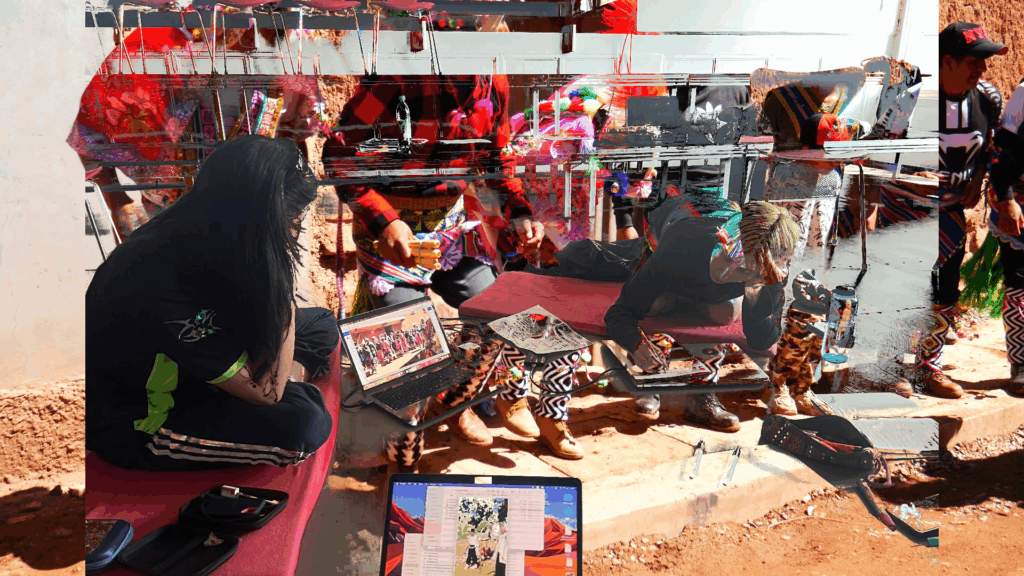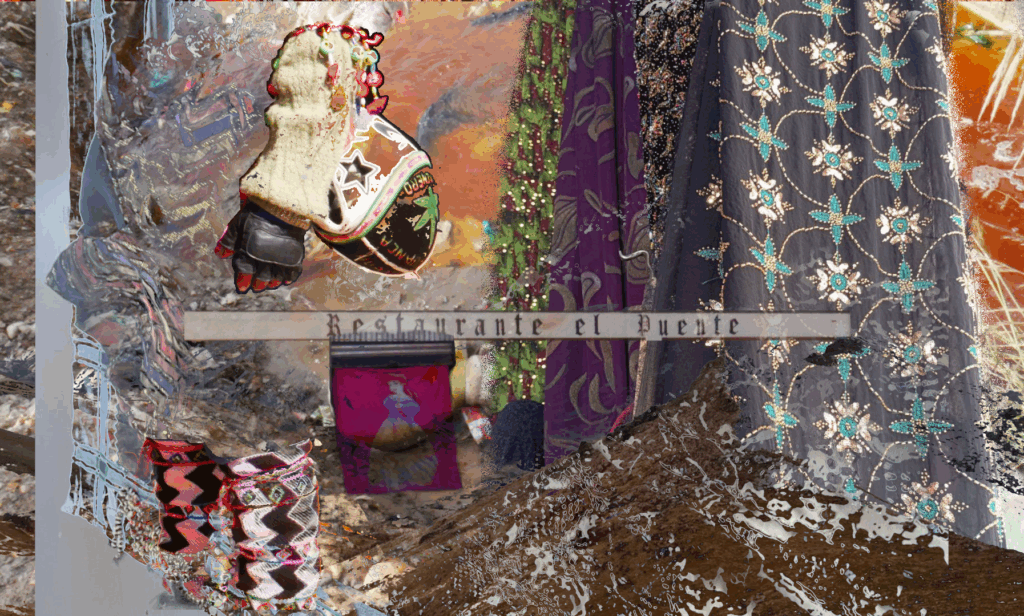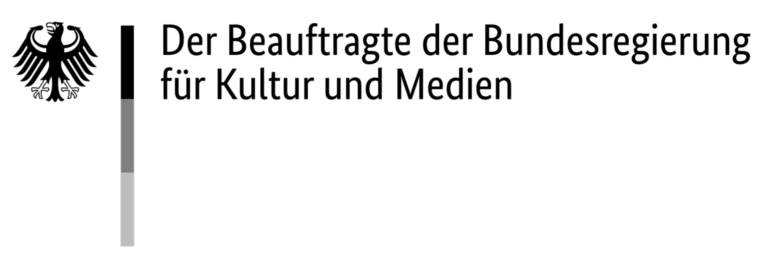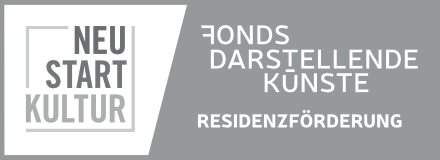
Parallel to our research concept, a big question that comes up already from the first day is how to come together and do artistic research in a time marked by constant anxieties and grief from wars, militarism and injustice?
How do we maneuver while some of us in the group are directly affected by that?
How do we take care of each other while working together?
How do we integrate community-based practices in the ways in which we spend time with each other inside and outside of the theater/studio?
We ground ourselves in dance, music and images from the mountains. The mountains and its people that resisted until today to be governed, despite continuous colonial attempts to invade, occupy and replace its population.
While in Bolivia the extraction of minerals from the mountain contaminates the water of the surrounding villages, in Kurdistan oak trees get burnt and olive trees uprooted.
Indigenous cosmologies resist to get capitalized. Traditions are very relevant to miners in order to extract minerals. It’s a constant negotiation with the mountains to give in order to receive. Every mine has a saint called tio and it is represented as a devil. Miners ask permission to him in order to work safely and have abundance.
sharing our archives from travels to Sanandaj, Marivan and to Macha
seeing mountains, textiles, vivid colors, feet dialogue with the earth
remembering and feeling the strong connection the people have to their land
We show each other images and videos from our homelands, geographies and travels, witnessing embodied and ancestral knowledge in memories. We see colours, patterns in textiles and clothing, shaped alongside its local geographies that keep changing with its political circumstances.
We collect our personal archives and compile them together. While doing that, we notice that our archives are not bound to the past, but deeply intertwined with the future. They resemble the futures and speculations of us, here, there and out of here and there.
What are the stories we want to tell?
We explore digital folklore, magical realism, speculative fabulation and cyber-futurism as methods for re-imagination of the archive.
How can we use the digital sphere to oppose the colonial notion of “landscape” without reproducing it?
two archives as two dances that reveal value and courage, as two dances that exist in mountain culture in present time
we teach each other halparke and tinku
to remember a dance that is archived in your body
to dance a dance that is distant but somehow close
to dance a dance that you feel alienated to
letting new rhythms be incorporated in the body
recalling familiar rhythms in the body
finding a dialogue, a moment of encounter between two dances, two places, two people
distant yet close, similar yet different
both dances explore materiality of the connection to the earth and everything around it: dust/dirt/rhythm/resonance/resistance – the movement starts at the core of the body and travels up to the shoulders.
the patterns and colors in the clothes stand out for us
colours of Andean indigenous clothes in contrast to its dry and mountainous geography. Many times these colours in textile are disregarded in western design.
seeking maximalisms as a response to white eurocentric esthetics.
textiles as pixelized codes from indigenous knowledge: how can we approach the archive through textiles?
the apparat of weaving them, considered the first computer, codifying in binary 0101 – positive and negative.
Textiles as a dispositive for choreography: repetition as in pattern to hold collectivity and synchronization.
following and trusting
“Arca Ira”



flausen+headquarters
Alexanderstraße 124
26121 Oldenburg
flausen+gGmbH
Klävemannstraße 16
26122 Oldenburg
Das überregionale Netzwerk flausen+ wird gefördert von dem Beauftragten der Bundesregierung für Kultur und Medien über das Programm “Verbindungen fördern” des Bundesverbands Freie Darstellende Künste e.V.
Gefördert vom Fonds Darstellende Künste aus Mitteln des Beauftragten der Bundesregierung für Kultur und Medien im Rahmen von NEUSTART KULTUR.
Gefördert vom Fonds Darstellende Künste aus Mitteln des Beauftragten der Bundesregierung für Kultur und Medien.



